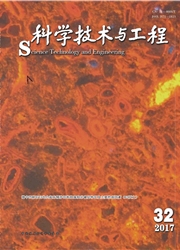

 中文摘要:
中文摘要:
为在体外观察外周血内皮祖细胞种植到去细胞猪主动脉瓣上的生长情况。采用TritonX-100联合胰蛋白酶、核酸酶去除猪主动脉瓣膜细胞。从志愿者外周血中分离培养内皮祖细胞,免疫荧光鉴定细胞后。将从外周血培养的EPC种植到去细胞猪主动脉瓣膜上,用HE、免疫组化染色和免疫荧光染色观察种植效果。结果显示猪主动脉瓣内的细胞去除彻底,但纤维支架保存良好。人外周血培养出的细胞,免疫荧光染色示ac-LDL和UEA.1阳性,提示为内皮祖细胞,种植后行HE染色可见到去细胞猪主动脉瓣膜表面单层内皮细胞生长,并且表达von Willebrand因子和CD31。
 英文摘要:
英文摘要:
To observe the recellularization of detergent acellularized porcine valves using human circulating endothelial progenitor cells in vitro. Porcine aortic valves were acellularized by deterging cell extraction using TritonX- 100, trypsin , RNase and DNase. Circulating endothelial progenitor cells were isolated by ficoll density gradient centrifugation from peripheral blood, cultured and then identified by immunofluorescent staining. After expanded in vitro, endothelial progenitor ceils were seeded onto the surface of the acellular matrix. Analysis of acellularity was performed by light microscopy. Cell seeding was assayed by HE, immunohistochemistry and fluorescence staining. The Results showed that the acellularization procedure resulted in an almost complete removal of the original cells while the 3 D arrangement of the matrix fibers was grossly maintained. After expanded in vitro, endothelial progenitor cells were double positive for DiI-acLDL and FITC-UEA-I thus indicating the endothelial phenotypes. HE, im- munohistochemistry staining with von Willebrand factor and fluorescence staining with CD31 after seeding of the valve leaflets demonstrated a predominance of viable endothelial progenitor cells in a confluent monolayer. Porcine aortic valves can be almost completely acellularized by a detergent extraction procedure. The xenogenic matrix was reseeded with endothelial progenitor cells from human peripheral blood.
 同期刊论文项目
同期刊论文项目
 同项目期刊论文
同项目期刊论文
 期刊信息
期刊信息
